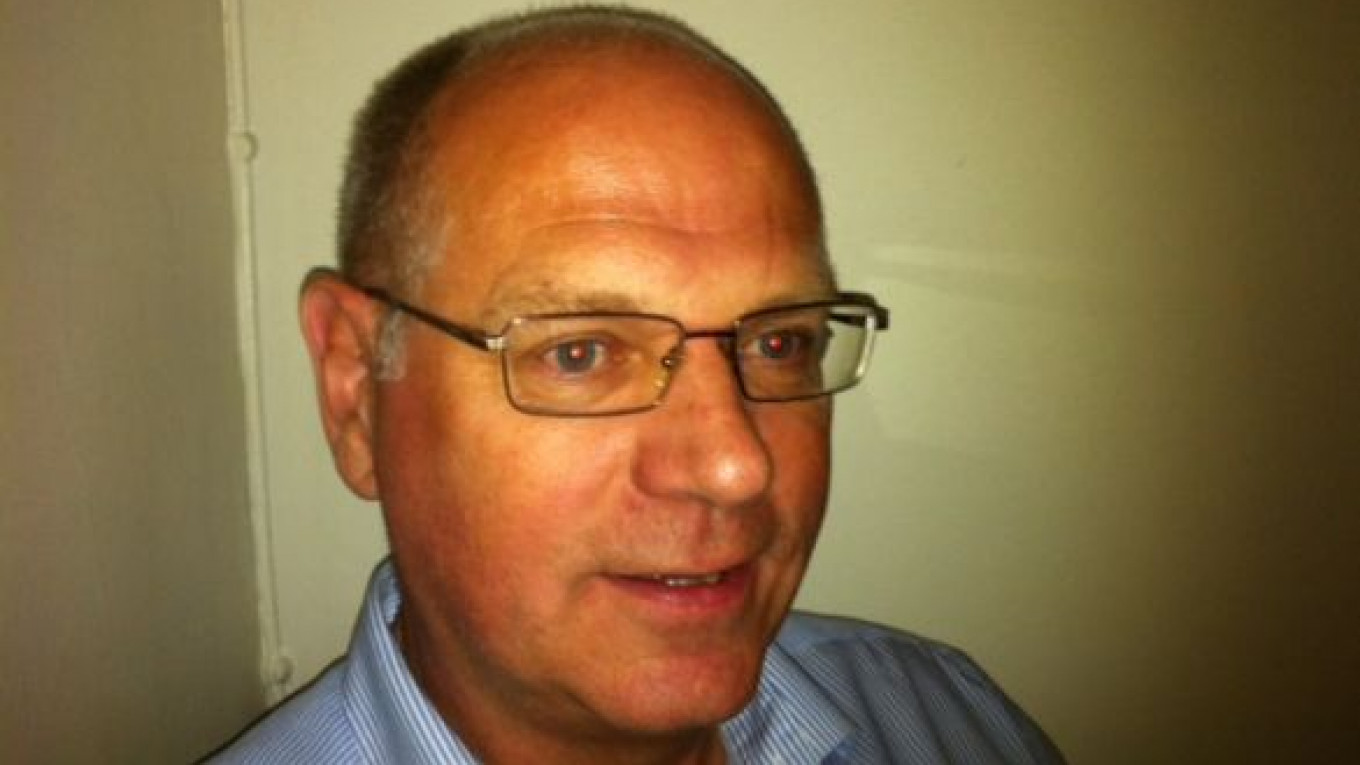In his college years, Peter Turel studied the Soviet planned economy at the University of Amsterdam. But he has been contributing to Russian capitalism for two decades, including with a venture that he hopes will bring cutting-edge Dutch greenhouse technology to the country.
Turel's inspiration for the business? His shock at learning that Russia imported 1 million tons of vegetables from EU countries last year.
"I love Russia, but I feel ashamed since you have so much land and yet bring vegetables from abroad," he said in an interview.
Turel spoke as the Dutch prime minister, Mark Rutte, discussed agriculture, energy and investment with President Dmitry Medvedev in the Kremlin.
Turel's business matches precisely what the two leaders were talking about. His company, Dutch Greenhouses, plans to introduce local farmers to greenhouses made with Dutch technology, renowned for their energy efficiency and bumper crops.
Russia has a lot of potential in the greenhouse industry, thanks to low gas prices and construction materials that are more affordable than in the Netherlands, Turel said.
The businessman, who is making his first foray into agriculture, said he spent half a year researching the industry before moving into it.
Turel plans to construct his first Dutch-style greenhouse in the Tver region next spring with the help of a Russian business partner and a local agriculture academy.
"Even in the small villages of Tver, I was able to find hard-working, nondrinking people," Turel said in almost perfect Russian. He acknowledged, however, that he would still prefer to hire young university graduates who are not familiar with Soviet agriculture.
The total cost for the 3-hectare Tver project is estimated at 12 million euros ($16.5 million), and Turel said he is negotiating loans with several Russian banks, including Sberbank. His long-term plans include a 150-hectare plantation, which may cost about 500 million euros.
Turel's romance with Russia runs back to Soviet times, when he majored in Soviet economic studies at the University of Amsterdam. He came to the country during Mikhail Gorbachev's perestroika in the late 1980s and jumped right in, setting up with a business partner a travel agency catering mostly to Dutch citizens coming to Russia to study.
The firm, Russia Travel, made good headway in the market, opening offices across other Soviet republics. But Turel sold his stake in 2000, driven by a desire to try something new, and has since been involved in a variety of ventures, including exporting Russian textiles and working as the regional director for the Tver branch of Belgium Vergokan, which makes cable-support systems.
"I need my own project, it will be like my business card," he said about Dutch Greenhouses.
With Russian farming growing, ever more agriculture producers are looking for Dutch greenhouse technology, known for energy efficiency that can never be matched by decrepit Russian greenhouses, known as ***teplitsy*** and mostly built in Soviet days.
Modern greenhouse technologies allow the harvest of up to 58 kilograms of tomatoes per square meter, compared with a maximum of 30 kilograms in Soviet-style greenhouses, said Tatyana Kulik, deputy director of Russian Greenhouses, an industry group.
There is a lot of available room on the market for enterprises like Turel's. The country has 1,700 hectares of greenhouses, but it needs at least 4,000 hectares more to satisfy demand for fresh vegetables, said Dmitry Lashin, deputy director of the Fito company, which controls 30 percent of the market.
The greenhouse industry has successfully lobbied the government for a 30 percent discount on energy costs from 2013 to 2020 for farmers who build greenhouses, Kulik said.
The Netherlands has more than 10,000 hectares of greenhouses, operated by some 9,000 enterprises. But "the Russian market is booming, while the Dutch market is on the brink of shrinking due to overcapacity," Lashin said.
Fito, which went into business in the 1990s, looked to the Dutch for an example of how to operate, he conceded.
But Turel said he does not see serious competition from Russian producers.
The three countries with the most state-of-the-art greenhouses are the Netherlands, Israel and Spain, he said, adding that "Russia is not on this list."
Turel said he was optimistic about Russia's economic future and that it is much easier to do business now than in the 1990s. "I never forget how it was," he recalled ruefully.
Looking back on his Soviet studies and the collapse of the economic system employed by the Soviet Union, he did not hesitate to offer his own economic forecast for Russia. "In the end, a normal economic environment will prevail," Turel said.
A Message from The Moscow Times:
Dear readers,
We are facing unprecedented challenges. Russia's Prosecutor General's Office has designated The Moscow Times as an "undesirable" organization, criminalizing our work and putting our staff at risk of prosecution. This follows our earlier unjust labeling as a "foreign agent."
These actions are direct attempts to silence independent journalism in Russia. The authorities claim our work "discredits the decisions of the Russian leadership." We see things differently: we strive to provide accurate, unbiased reporting on Russia.
We, the journalists of The Moscow Times, refuse to be silenced. But to continue our work, we need your help.
Your support, no matter how small, makes a world of difference. If you can, please support us monthly starting from just $2. It's quick to set up, and every contribution makes a significant impact.
By supporting The Moscow Times, you're defending open, independent journalism in the face of repression. Thank you for standing with us.
Remind me later.






